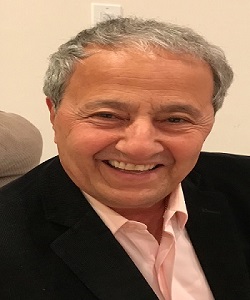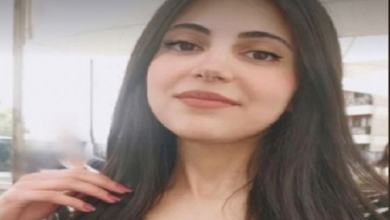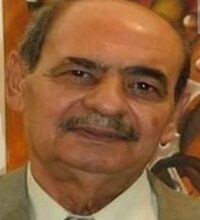
كما في كل مكان وزمان، هناك مجموعة من الاصحاب تلتقي دائماً، إما في مناسبات مشتركة ،أومرتبة،للابقاء على التواصل.أصحابنا هنا في واشنطن معظمهم عرب متقاربي الاعمار ومن خلفيات متنوعة . منذ أسبوع، كنا في بيت أحدهم .وكالعادة ، تكون السياسة و ظروف الاوطان حديث الجلسات. هذه المرة اخذ الحديث ، ربما من وحي عذابات الاوطان، عن الهجرة الى امريكا والظروف التي دعت اليها و ما آلت اليه الاحوال بعدها.
كنت أستمع و أتفحص ملامح الوجوه وهي تكتسي بشتى الانفعالات.وجه غاضب يلعن الساعة التي هاجر فيها من وطنه. وجه آخر يرفض التكلم باللغة العربية، يتحدث وكأنه وُلِدَ هنا، حتى اسمه تغير من محمد الى ” مو”. و آخر يخبرنا أنه نقل عاداته و تقاليده العربية كاملة الى منزله، اذ “ممنوع الذوبان بهذا المجتمع الغريب”! و لم يخلُ الأمر من وجوه تعلوها تعابير الحيرة والضياع.
في تلك اللحظة بالذات، عادت بي الذاكرة لأكثر من اربعة عقود الى الوراء.
في مطار جون كينيدي في نيويورك ، وفي السابع والعشرين من شهر أيلول من العام 1979،وصلت الى الولايات المتحدة الامريكية ،حاملاً لقب ” تلميذ” في معهد لتعليم اللغة الانكليزية في مدينة أتلانتا ،عاصمة ولاية جورجيا. يرافقني صديق جميل رحل، لروحه السلام. أصرّ على أن يجعل تاريخ سفره المتعلق بعمله في امريكا موافقاً لذاك التاريخ، ليرافقني و يؤنسني في رحلتي تلك ،كونه زائراً دائماً لهذا البلد.
في المطار، يسأله ضابط الجمارك ما الذي يحمله في حقيبة اوراقه . يفتحها ليصعق الضابط و يغلقها فوراً صارخاً : هل انت مجنون! أنت في نيويورك ! كانت في الحقيبة رزمات كثيرة من الدولارات ! يضحك الصديق ويحاول تأبُط ذراع الضابط لتهدئته. ينتفض الاخير مرة اخرى و يلتفت يميناً و يساراً مستنكراً ” ماذا تفعل !” خشي ان يُساء الظن في تصرف الصديق ، اذ ان تأبط ذراع الرجل للرجل ليس مألوفاً هنا و غالباً ما يكون له تفسير آخر!
آنذاك كان أول درس تعلمته ساعة وطئت قدماي ، ولأول مرة،أرض أمريكا ! انني أدخل عالماً تختلف ثقافته عن ثقافتي، وعليّ إيلاء هذا الشأن الكثير من اهتمامي.
انتقلت الى واشنطن بعد المعهد .لم يكن سهلاً عليّ أن أقفز فوق حاجز الثقافتين وأتجرّد من كل ما كان منّي ولي و أتقمص آخر، يحيط بي وأعيشه. بقيت لسنوات أقارب بين شروق الشمس وغروبها.أصرّعلى انها تشرق من وطني الأم ثم تأتي إليّ، محملة بدفئها ، كي تغرب من حيث أنتظرها هنا في واشنطن .لم أقو على الاعتراف بأن هناك يومين، واحد كان هناك، وآخر سيبدأ هنا، وهذا الذي هنا ستزداد أرقامه الى سنوات وعقود .
اختارني التحدي لأثبت مقدرتي على البقاء والنجاح. كان عليّ حياكة ثوب أرتديه،هنا في بلد اخترت فيه ان احمل لقب ” المغترب” ومن ثم لقب ” المواطن“، ثوب لا يعرّيني من ثقافتي التي عشتها، ولا يتهدّل عليّ هنا ليُشار إليّ بالإبهام تمييزاً !
كل ما كان حولي ، خيوط ملفوفة ،معقدة ،متشابكة ،ذات ألوان مختلفة، وكان عليّ ايجاد “السكينة” في هذه الورشة الصاخبة، وحياكة الثوب.
تعلمت كيف أحيك هذا الثوب من الخيوط التي أعطاني إياها هذا البلد بإبرة جاءت معي من وطني الأم .
الآن ، أتطلعُ إليَّ به ! ثوبي الذي أعيش فيه راضياً.
The Immigrant Between a homeland and a home
Ridaa As’ad
As in every place and time, there is always a group of friends who always meet, either on special occasions, or arranged ones to stay in touch. A week ago, such a gathering took place at one of our friend’s house. As usual, politics and the conditions of the various respective homelands take prominence in the conversation. This time, the discussion focused on immigrating to America and the circumstances that called for it and the outcomes, perhaps inspired by the torments of the homelands.
I was listening intently examining the expressions on my friends’ faces. One was angry cursing the hour he emigrated from his homeland. Another who refused to speak in Arabic, kept speaking in English only, as if he was born here, even his name was changed from Muhammad to “Moe”. Another told us that he transferred his entire Arab customs and traditions to his current life, because “It is forbidden to melt into this different society”! and there were faces that seemed either confused or lost.
At that very moment, my memory took me back to more than four decades ago!
At John F. Kennedy Airport in New York, on the twenty-seventh of September 1979, I arrived in the United States of America, holding the title of “student” at an English language institute in Atlanta, the capital of the state of Georgia, accompanied by a beautiful friend who has since departed, May his soul rest in peace. He had insisted on arranging his business trip to the US, which he frequented regularly, to coincide with my travel dates to keep me company and to give me, am sure, moral support.
At the airport, the customs officer asked him what he was carrying in his briefcase. He quickly and unabashedly opened it and to our surprise the stunned officer immediately closed it, shouting, “Are you crazy! You are in New York! My friend was carrying bundles of dollars in his briefcase! He laughingly tried to hold the officer’s arm to calm him down. The latter jolted up again and turned left and right, denouncing “What are you doing!” fearing that my friend’s behavior will be misconstrued, as holding another man’s arm is not an acceptable practice here and often has other connotations!
That was the first lesson I learned upon my arrival in America for the first time. Here I am entering a world whose culture is different from mine, and I must pay a lot of attention to this.
I moved to Washington D.C after the Institute. It was not easy for me in the beginning to jump over the barrier of the two cultures and try to strip away everything that was part of me and to reincarnate into another taking in all the new environment that surrounded me. For years I tried to merge the sunrise and the sunset into one day. I insisted that the sun rises from my homeland and then comes to me, laden with its warmth to set. I could not admit that there were two days, one was there, and another would start here that eventually continued to mark years and decades.
The challenge was to prove to myself that I had the ability to survive and succeed. I had to knit a garment to wear, here in a country where I chose to bear the title of “expatriate” and then the title of “citizen”, a garment which will not strip me of my culture, nor will it dangle on me in a way that would make me the subject of discrimination and alienation.
All that was around me, were intertwined and tangled threads of different colors, and I had to find “tranquility” in this noisy workshop and sew the fitting garment.
I learned how to knit this garment from the threads that this country gave me with a needle that came with me from my homeland.
Now, I look at myself in that right and fitting garment with great satisfaction.




